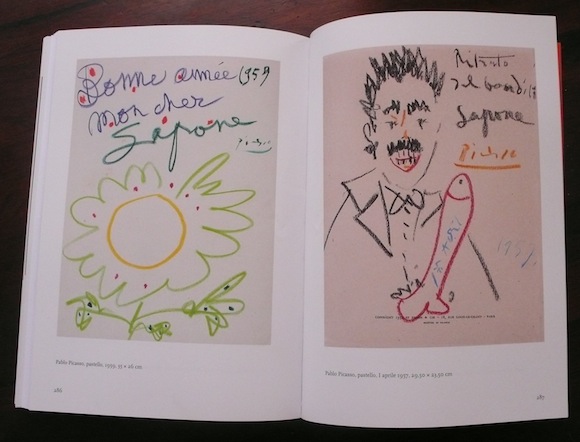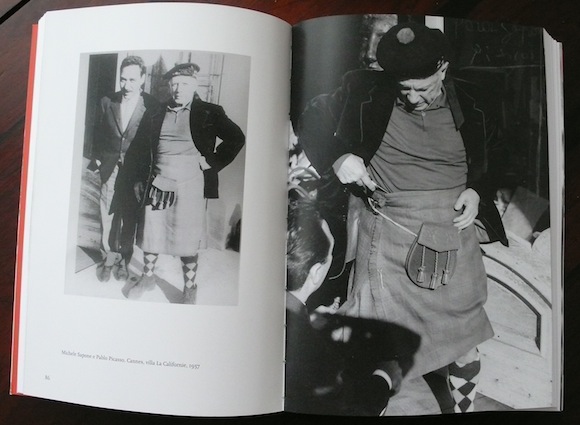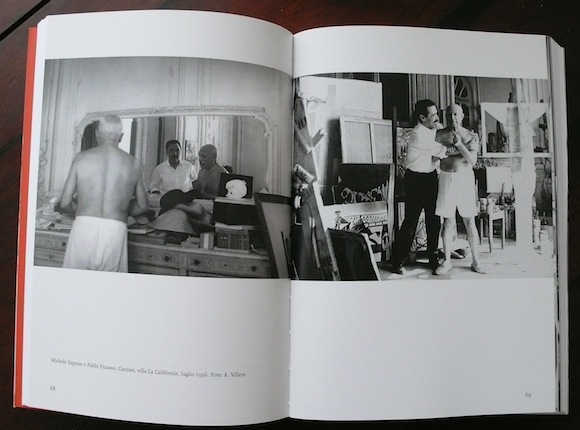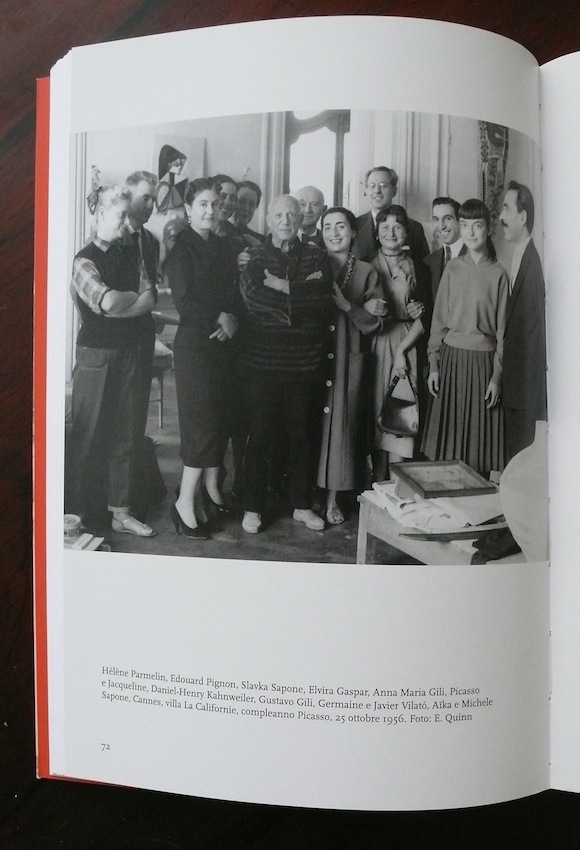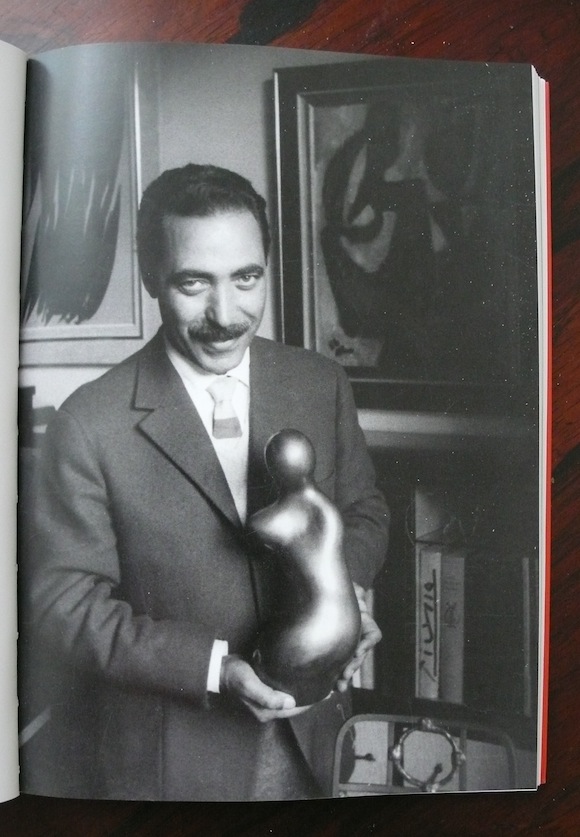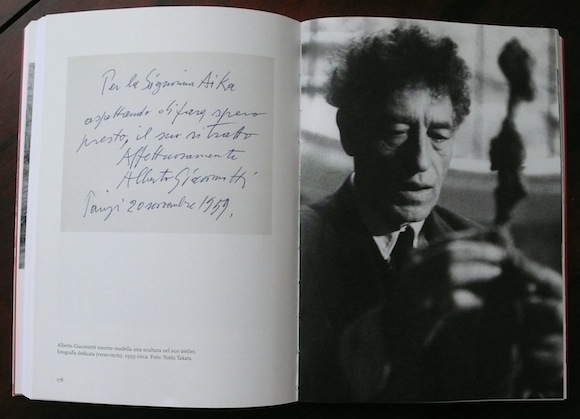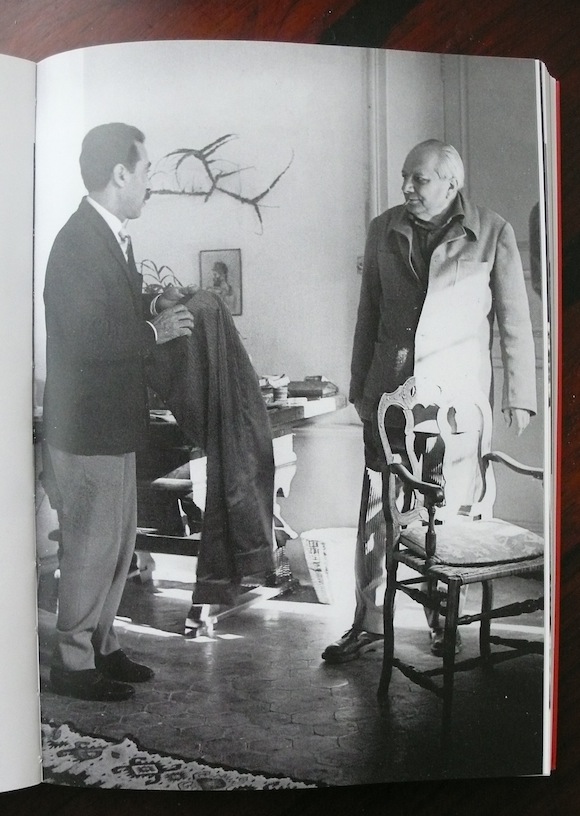The master tailor’s tale: Il Sarto di Picasso
In her review this weekend of TJ Clark’s new book Picasso And Truth: From Cubism To Guernica, Financial Times art critic Jackie Wullschlager writes about how meaninglessness replaced absolute truth in the 20th century epoch of terror and totalitarianism, and that “in our age of performance and body art, Clark brilliantly posits a Picasso who replaced a truth project with a performance project, playing, dazzling, persuading.”
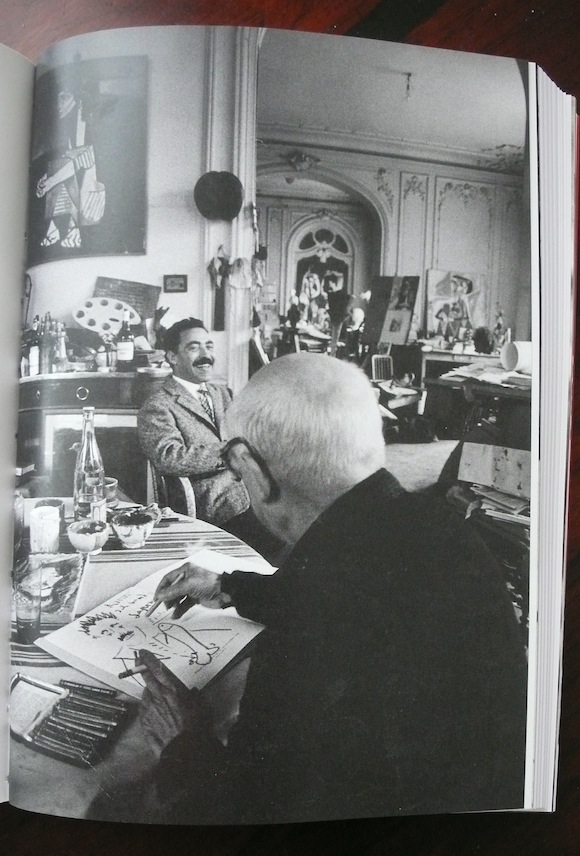
//Picasso sketches a priapic portrait of Michele Sapone at his villa La Californie, Cannes, 1957. Photo: DD Duncan//
In his personal life as in his art, these characteristics were foregrounded by last year’s publication of Luca Masia’s book about Michele Sapone, Il Sarto di Picasso (Picasso’s Tailor).
“Picasso is a little model,” Sapone told Time magazine in 1971. “I have made him velvet robes, kilts, jackets embroidered in the Yugoslav manner. I assure you, he wears them with majesty.”

//Left: Decorated photograph with wife Jacqueline at the 1960 Cannes film festival. Photo: Edward Quinn. Right: Wearing a jacket "embroidered in the Yugoslavian style", 1958. Photo: DD Duncan//
Not yet published in English translation, Il Sarto di Picasso’s photographs reveal much about the interplay between master tailor and illustrious client, all the while placing the Italian Sapone, his wife Slavka and their daughter Aïka dead centre of Continental Europe’s mid-century artistic milieu. Sapone was the recipient of works by leading artists, though when recalling the first time he was offered one in exchange for a suit (by the Florentine artist Manfredo Borsi) he confessed: “I had never looked at a painting in my whole life; I looked at women.”
Aïka, meanwhile, modelled for Giacometti and her Libro d’Oro (one of the so called “golden books” published privately by Italian nobility) features work dedicated by Picasso, other clients and those in the family’s social circle, including artists Jean Arp, Alberto Burri, Sonia Delaunay, Hans Hartung, Paul Mansouroff and Gino Severini and the poet Jacques Prévert.
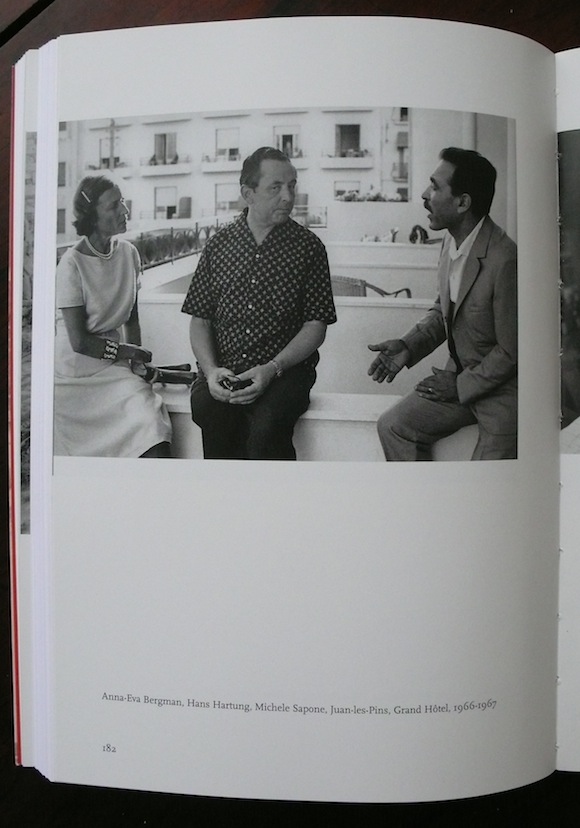
//Sapone (right) with the painters Anna-Eva Bergman and Hans Hartung in the Grand Hotel, Juan-le-Pins, mid-60s//
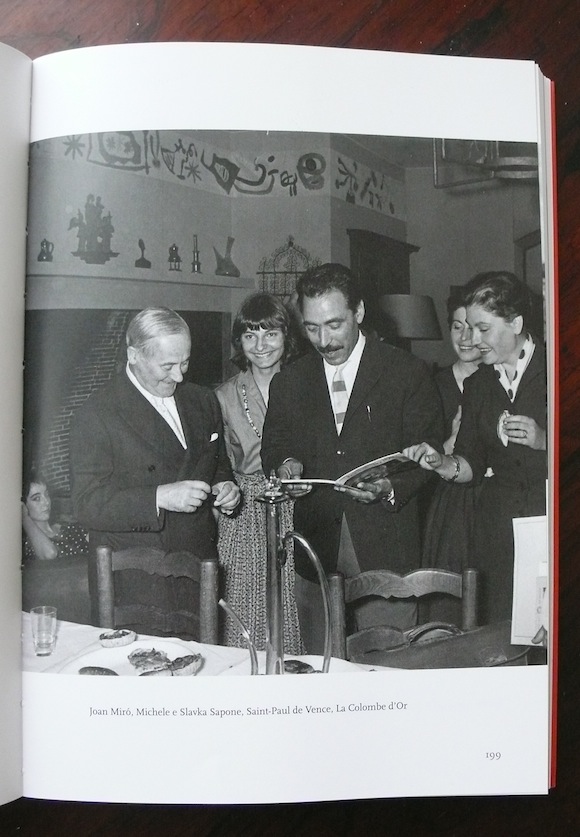
//With Joan Miró (left), Slavka and others at the hotel La Colombe d'Or in Saint-Paul de Vence, early 60s. Note Miro's wall decorations in background//
TJ Clark’s Picasso And Cubism is available here; read Jackie Wullschlager’s review here.
Il Sarto di Picasso is published by Silvana Editoriale and is available here.
Read Edward Quinn on photographing Picasso here.
Here Aïka Sapone talks about modelling for Giacometti:


